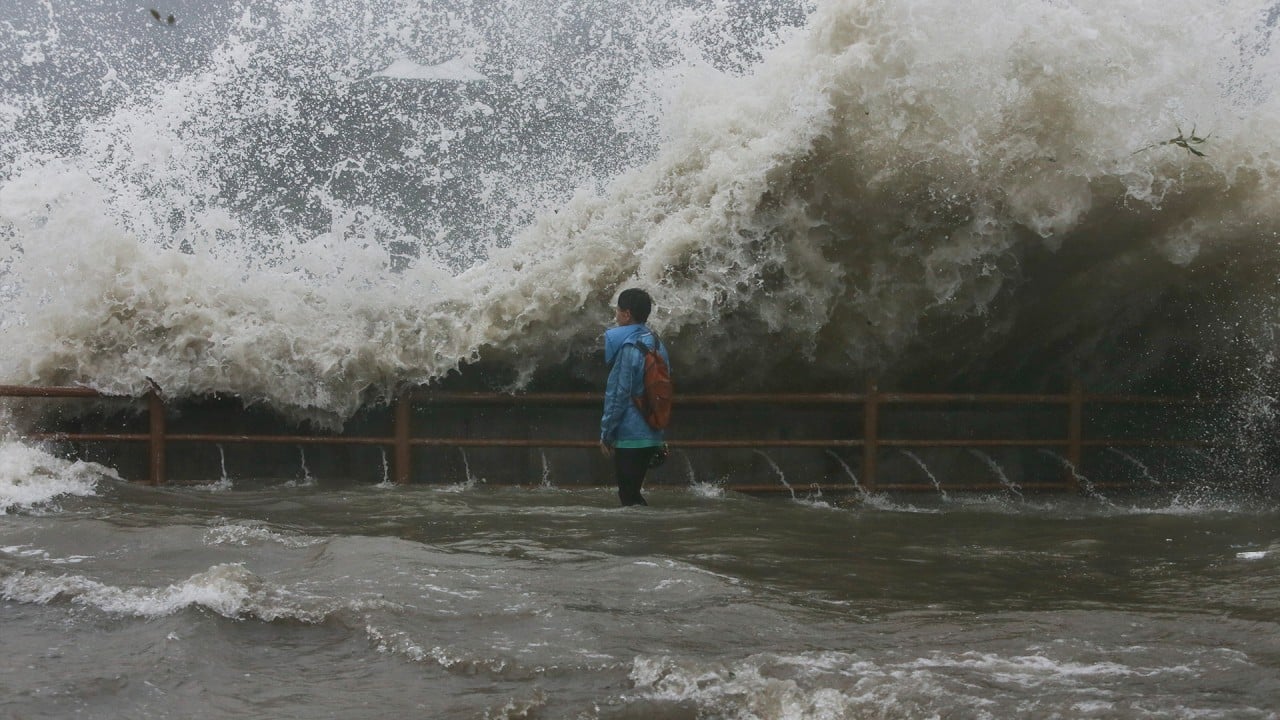
09:22
Central under water in 80 years? Hong Kong’s coming climate crisis

Asia-Pacific listed companies had the second-highest disclosure rate of climate change risks and opportunities in their annual financial reporting, trailing fast-improving firms in Europe in a global study of listed peers in five geographic regions.
The average level of reporting by 273 firms in the Asia-Pacific region was 36 per cent for the 2021 fiscal year, an increase from 34 per cent in 2020 and 25 per cent in 2019, according to the fourth annual review published by the Task Force on Climate-related Financial Disclosures (TCFD).
Peers in Europe scored 60 per cent versus 50 per cent a year earlier, while those in North America improved to 29 per cent from 20 per cent. Latin American firms averaged 28 per cent versus 26 per cent in 2020. Peers in the Middle East and Africa achieved 25 per cent versus 22 per cent previously.
The latest study used artificial intelligence software to examine the annual reports of 1,434 companies in eight major industries. They were ranked on 11 TCFD disclosure criteria within a globally-recognised framework. Timing may have contributed to the better score, said Elsa Pau, CEO of BlueOnion.
“The first TCFD reporting requirements [imposed] by regulators, such as in Hong Kong, happened within the past 12 months, thereby raising the number of disclosures,” said Pau, founder of the portal that tracks sustainability data for companies and funds. It takes time to see whether it is backed by real commitment and strategies to counter climate issues, she said.
Hong Kong and Japan are among seven Asian jurisdictions that have issued guidance incorporating certain TCFD recommendations to encourage climate-related disclosures. Japanese firms were required to comply with its TCFD-equivalent framework from April 2022. Hong Kong plans to make it mandatory for financial institutions, asset managers and listed firms by 2025.
“Asia has really made huge progress over the past few years, especially in Japan,” Mara Childress, director of global public policy at Bloomberg, a financial data provider. “The Japanese government really got behind the TCFD recommendations and created a public-private group to hold workshops and discussions.”
The TCFD initiative was established in 2017 by philanthropist Michael Bloomberg and Basel-based Financial Stability Board. It aims to improve reporting of climate-related financial information to drive climate mitigation and adaptation actions.
As much as US$12.7 trillion of global assets are exposed to once-in-a-century coastal flood risk by 2100 due to the impacts of climate change, the Intergovernmental Panel on Climate Change said in a report published in February.
Financial and securities regulators in Brazil, Singapore, Britain, New Zealand and Egypt have also announced plans to make TCFD-aligned disclosure requirements mandatory. Authorities in the US, Canada, European Union and Switzerland have also considered a similar plan.
While the number of companies making TCFD-aligned disclosures in 2021 is five times higher than in 2017, more “urgent progress” is still needed to improve transparency, said Stacy Coleman, an official at the TCFD secretariat.
The average number of disclosures per company has risen to 4.2 in 2021 from 1.4 in 2017, the TCFD study found, well below its 11 recommended disclosures that include governance, climate mitigation and adaptation strategy, risk management and greenhouse-gas emissions metrics.
Some 51 per cent of the 1,434 companies in the 2021 report have addressed at least four recommended disclosures, versus 13 per cent in 2017, the task force said. Only 4 per cent have reported on all 11 TCFD-suggested disclosures.
The TCFD also surveyed 149 asset managers, of which only a quarter indicated they report climate-related targets, with 38 per cent saying they are undecided or have no plans to do so. Among 76 asset owners polled, 58 per cent said they report on targets.
The higher percentage of disclosure should not be mistaken as a huge progress, Pau at BlueOnion said. Many companies and asset managers in Hong Kong and Singapore are approaching reporting as a “compliance exercise” and to appeal to European investors, rather than genuinely coming up with strategies to meet climate goals, she added.